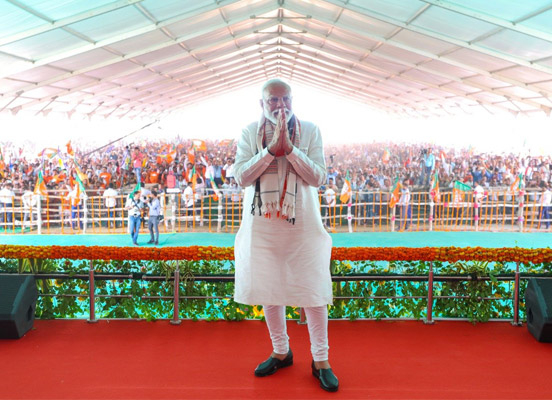
By Happymon Jacob
With a new government taking office this month, this is an opportune moment to begin thinking about a grand strategy for the country, given the global aspirations the country has been pursuing.
But what is a grand strategy? Simply put, a grand strategy could be viewed as having some of the following characteristics. A dynamic assessment of medium- to long-term geopolitical trends, clarity on long-term national objectives, an all-of-government approach to achieving those objectives, and a synergy between national capabilities and objectives.
In developing a grand strategy for India, the first step is to undertake an objective assessment of the world we live in. In my view, the current world order is marked by four key features: Instability induced by the transition from one order to another; sharpening United States (US)-China rivalry and the potential emergence of a bipolar world; the rise of tech competition and emerging tech divides; and the rise of China as a potential next superpower.
The second step is to tailor a grand strategy for India around the country’s most fundamental, or primary, objectives. These objectives are, of course, somewhat subjective and different governments may approach them differently. In the Indian case, there are at least three primary objectives: Achieving rapid economic growth; being prepared to defend against external aggression; and contributing to building a multipolar Asia in which India is a pole. Each of these grand objectives could have more specific policy objectives. For instance, utilising geo-economic opportunities in the Indo-Pacific would support India’s economic growth.
Third, identify the primary and secondary contradictions that come in the way of achieving India’s grand strategic objectives. As for India’s primary contradictions, an aggressive and unaccommodating rise of China tops the list considering two of India’s primary objectives, as identified above, are complicated by China.
More so, several of India’s challenges in the neighbourhood, some of its problems with Pakistan, and the potential Chinese hegemony in Asia flow from the China contradiction. The logic of primary contradiction also suggests that the country must focus on resolving its secondary contradictions so as to free up resources to focus on the primary contradiction.
Reaching out to the neighborhood is useful in dealing more effectively with the China challenge. Secondary contradictions include challenges from Pakistan, South Asian States using China to balance India, and the impact of Ukraine on India. However, focusing on those challenges without addressing the primary contradiction might produce suboptimal results.
The final step is to ask the question: What opportunities exist to address these contradictions and achieve India’s grand strategic objectives? Some such opportunities include the growing US-China competition, a chaotic international system, the global focus on the Indo-Pacific, a positive international view of India, and changes in the international system. If so, India must make use of these opportunities to deal with its most consequential challenge or primary contradiction, China.
A grand strategy must also be translated into specific actionable strategies keeping in mind the country’s grand strategic objectives. To achieve this, consistent development of a long-term perspective and routine strategic stock-taking within the government must be assiduously encouraged.
The new government must, therefore, consider formulating a national security strategy document keeping in mind the country’s long-term objectives and the strategic environment it must operate in.
A far more powerful and confident contemporary India must articulate its vision for the world and its place in that world in the form of a grand strategy. If India wants to be a great power, it must start thinking like one.
----------------------------
(Jacob teaches India’s foreign policy at Jawaharlal Nehru University, Delhi and is the founder of the Council for Strategic and Defence Research. The Op-Ed first appeared in The Hindustan Times)